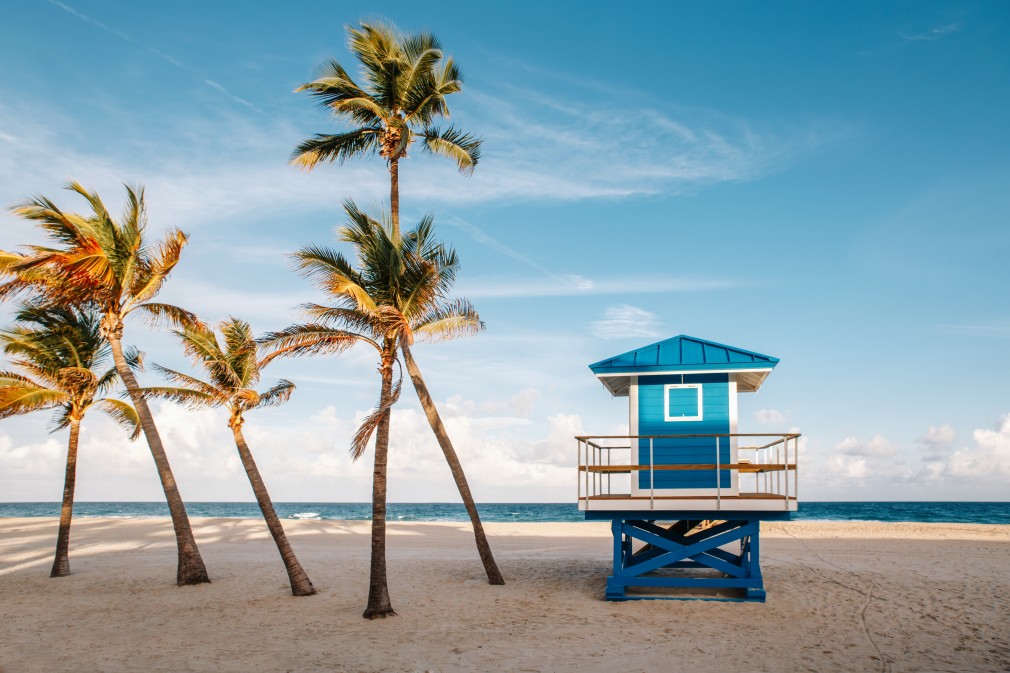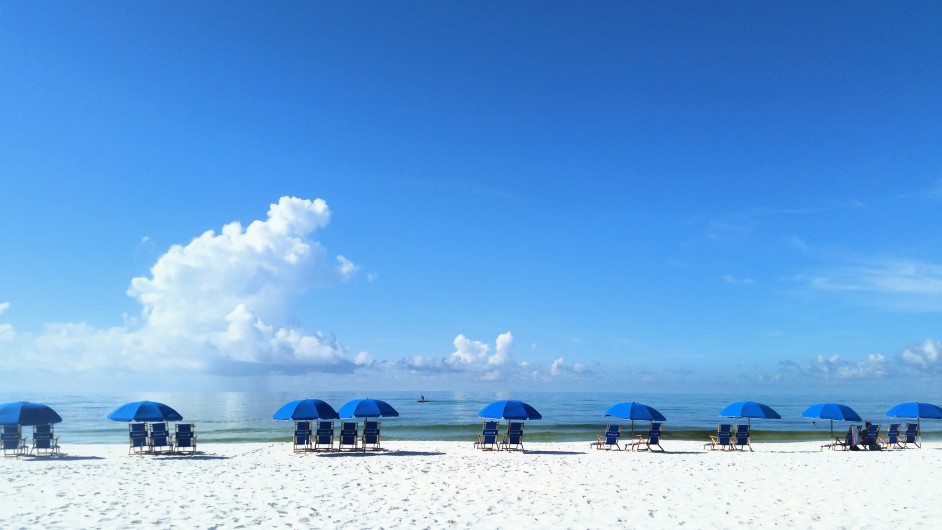About 10,000 baby boomers retire every day.
Yet, according to a study by Northwestern Mutual, 45% think there’s a chance that they’ll outlive their savings. For many, the answer to this problem is to continue working long past the day they turn 65. But there’s another option to consider- retiring abroad.
Retiring abroad, specifically in a country where the cost of living is lower than that of the US, allows you to maintain the lifestyle you have with a smaller budget in addition to experiencing the adventure of exploring a new country and its culture.
Each and every year, thousands and thousands of people choose to take advantage of geographical arbitrage to retire overseas much earlier than they would have been able to in the US. They get to live like royalty on a budget that would have been almost impossible to pull off in America, all without having to sacrifice a lot of the amenities and opportunities that they would have enjoyed back home, too.
Retiring abroad still isn’t a picnic though, so here’s what you need to do to start planning:
Decide when to retire
Do you want to? Retiring past 65 out of choice isn’t abnormal. You might enjoy your job and want to further your career or maybe you enjoy the social interaction it provides. Many retirees cite that they feel bored.Do you have enough money? Try speaking with a financial adviser . There’s also the less expensive option of using a retirement calculator.
There are a lot of open parts and pieces of the puzzle you’ll have to put together when you want to retire overseas and abroad, but the most important thing – by far – is figuring out when you want to retire in the first place.
A lot of people are under the impression that they have to wait until they hit 65 to give up punching the clock and working 9 to 5, but again a lot of that has to do with our cultural idea of retirement here in the United States.
When you choose to retire abroad you can (oftentimes) retire much earlier than that – sometimes 20 or even 30 years earlier, depending on where you want to live, how much you have available to live off of, and what you want to do during your retirement, too.
But just as you wouldn’t head out on a road trip (or retire halfway across the world) without and ultimate destination in mind you cannot effectively plan for your retirement without first figuring out when want to walk away from the rat race and live life on your terms.
Budgeting
How much do you have in your personal savings? Do you receive a pension? Does your employer have a 401k plan? How much do you expect from Social Security? According to AARP, the average Social Security Benefit in 2019 was $1,461 which considerably less than the average wage of most Americans.
The best time to plan and budget for your retirement was the very first moment you started to make any money at all, but the second best time to start planning and budgeting for your retirement is right now – this very moment.
This is true even if you do not necessarily have a mountain of money on hand to begin retiring with right now. You’ll want to sock away anything and everything you can to start building up that nest egg – investing smartly there’s something we highlight in just a moment – so that you can get the ball rolling and figure out how long it’s going to take you to achieve your retirement goals.
The budget that you’ll need to comfortably retire is going to be influenced in a big part based on where you’re going to retire, whether or not you’re going to work part-time while you are retired, and whether or not your investments are income producing or strictly “nest egg only”.
For obvious reasons, those willing to pick up a part-time job, those with a side hustle small business that provides income on a regular basis, and those with income producing investments are going to be able to accelerate their retirement timeline quite a bit more than those that are strictly saving up until they have enough to pull the ripcord.
There’s no such thing as a one-size-fits-all kind of budget when it comes to retiring, though, so really spend time thinking about how you want to live, where you want to live, and how much money you’ll need to live comfortably going forward.
Consider Investing Overseas
If you realize you may not have as a big of a budget as you planned consider investing overseas. Many choose to put all your eggs in one basket by investing only in the US. But with overseas investments you take on less risk because you’re gaining income in different currencies. And with more countries switching to free-market economies, their growth rates can be up to three times faster than developed market economies.
Global investment opportunities (particularly in channels like real estate, Forex, and other markets) open up a world of investments that wouldn’t have existed if you limited yourself exclusively to US-based investment vehicles.
It’s a good idea to dip your toe in the water a little bit as you get established, though, just so you can sort of feel things out. But there’s also a lot of potential to take advantage of in these relatively untapped markets that can dramatically accelerate your retirement timeline in ways you might not have ever thought possible before.
Diversity is a huge piece of the puzzle to successful investing with your retirement in mind. You certainly don’t want to pile up all of your savings into a singular investment, crossing your fingers that nothing bad happens, only to get wiped out because of a market correction or downturn that leaves you with a lot less than you started off with.
Make smart, savvy, and strategic decisions when it comes to investing through diversified opportunities and you’ll have a lot less to worry about choose one or two of those investments not pan out as well as you had hoped initially.
Choose which country is the best place to retire
There are many important factors to consider. What type of climate do you enjoy? Are you interested in learning about the native culture? Is there a thriving expat community? How do the country’s citizens generally treat foreigners? But the most important question is does the cost of living fit within your budget?
With a budget of $1,000-$1,500 per month consider:

- Indonesia Indonesia boasts the 2nd largest tropical forest in the world, coral reefs to go snorkeling in, and volcanoes to hike on.
- Bolivia Bolivia offers a temperature climate, indigenous folk music, and beautiful tours through its salt flats.
- Armenia In Armenia, one can enjoy the view of Mt. Ararat, travelling via rope-way, and the medieval architecture.
- Fiji retiring in Fiji means, romantic getaways in bungalows, fresh seafood, snorkeling and diving, and an abundance of local culture to take part in.
- Grenada In Grenada, forests, mountains and tranquil beaches contribute to amazing scenery. It’s also known for it’s chocolate, friendly locals, and exquisite carnivals.
- Laos Laos is mostly known for its many rivers and cave systems. And with 130 ethnic groups there’s a vast amount of culture to learn and absorb.
- Montenegro Montenegro offers some of the best hiking in all of Europe, picturesque villages, and affordable yachting on the Adriatic sea.
- Nepal In Nepal, one can hike the Annapurna Circuit, go on safaris, and visit the many Buddhist and Hindu temples.
- Nicaragua known for its colonial architecture, wildlife, and lakes and volcanoes, Nicaragua is a great place to dive and hike.
- ZimbabweZimbabwe boasts quality safaris, national parks, waterfalls, and plenty of archaeological ruins to explore.
With a budget of $2,000-$2,500 per month consider:

- Panama With its primary currency being the US dollar, Panama is very familiar for US retirees. It’s also known for its canal, the biodiversity within its islands, and excellent coffee.
- Costa Rica Costa Rica is known for its beaches, rivers, rain forest, exotic crops,and abundance of turtles.
- Mexico Mexico boasts amazing food, live music, and art, along with beautiful beaches and plenty of colonial towns to explore.
- Ecuador In Ecuador, you can soak in natural hot springs, ride the Devil’s Nose through the Andes, and sleep in an Amazon rainforest lodge.
- Malaysia Malaysia home to a vast number of caves, beaches, and islands. It’s also known for it’s tea, hiking, and chinatowns.
- Columbia Whale-watching, snorkeling, and journeying through the amazon are just a few of the many activities Columbia has to offer.
- Portugal In Portugal, you can take gondola rides, visit castles, whale-watch, ride through the Rio Douro Valley , and much more.
- Thailand Thailand boasts year-round sunshine, friendly people, and amazing food and culture.
- Spain In Spain, you can visit beautiful churches, delectable wine, plenty of history and art, as well as great food.
- Italy Italy is home to Vatican City, the Colosseum, amazing food, fashion, and extensive history.
With a budget of $2,500+:

You could live almost everywhere comfortably; Another option available for you would be to aim for a more luxurious lifestyle. Gated Communities in foreign countries not only have spectacular views and actives at lower prices, but also give you a chance to mingle with fellow expats. For example, Vista Encantada is a gated community consisting of lots, homes, and condos just north of Puerto Vallarta, Mexico. You can get to know your neighbors at the common area pool, BBQ’s, or the botanical gardens; Take a hike or morning walk through the jungles that surround both sides and enjoy spectacular ocean views; or pay a visit to Costa Canuva, the popular new tourist destination only a few minutes away with 5 diamond restaurants, hotels, and a magnificent golf course. At a place like Vista Encantada, you can retire in paradise. To reach out to them, check out their official website or Facebook.
Apply for Residency

If you’re planning to spend the rest of your retirement in one country you’ll need to apply for residency. Some countries are eager for overseas retirees and even offer benefits and special retiree visa programs. To qualify, they typically have you meet a minimum monthly income, a certain amount of money deposited in a local bank, or invest in a business.
Recognize and understand that any international locale that you have decided to retire in will have its own rules of its own regulations, and its own laws dictating how foreign citizens are able to retire within their borders – and make sure that you are strictly adhering to those rules, regulations, and laws.
Nobody wants to preplan an entire retirement only to discover that they fill out the proper paperwork and now they have to fight lengthy legal battles far from home, legal battles that are going to suck up a lot of the money that they set aside to retire on in the first place.
Most of this paperwork can be navigated all on your own without too much headache or hassle. At the same time, it may not be a bad idea to have a trusted attorney that specializes in this area (and the locale you are retiring in) to double check that everything is good to go and you haven’t overlooked any of the fine print.
Health Insurance
Medicare doesn’t apply overseas and it’s unlikely your private insurance will as well. You’ll need to explore either getting an insurance plan in your new country, buying an international health insurance policy, or paying out-of-pocket for every medical expense. Paying out-of-pocket can sound expensive but the cost of medical care is different in every country. Depending on where you go, routine care can be significantly cheaper.
There are entire communities worldwide that are set up specifically by ex-pats that are built on the back of international locales with amazing health insurance and great healthcare. Bangkok, in particular, has some of the best and most affordable healthcare you’re going to find in the international community – particularly if you are a nonresident/noncitizen retiree.
These are the kinds of things you want to consider before you choose your ultimate retirement destination. As you get older your medical needs are going to increase, and you’ll want to be sure that you can count on a high quality of care, a high standard of medicine in that area, and a level of affordability that isn’t going to wipe out your retirement budget.
Tax and Legal Obligations

Lastly, there’s the question of how to receive your mail. Whether you’re planning to travel to many different countries or retiring abroad in one country, this is extremely important. Bank Statements, IRS, and Voter Registration all require a mailing address. The solution to this problem is to get a virtual mailbox. A virtual mailbox is a service that offers a permanent US street address. With US Global Mail, the exterior of your mail is scanned and uploaded as soon as it arrives. Then, you decide whether to have it opened and scanned, shredded, or forwarded to a different address. You can have access to your mail within minutes no matter where you are.





